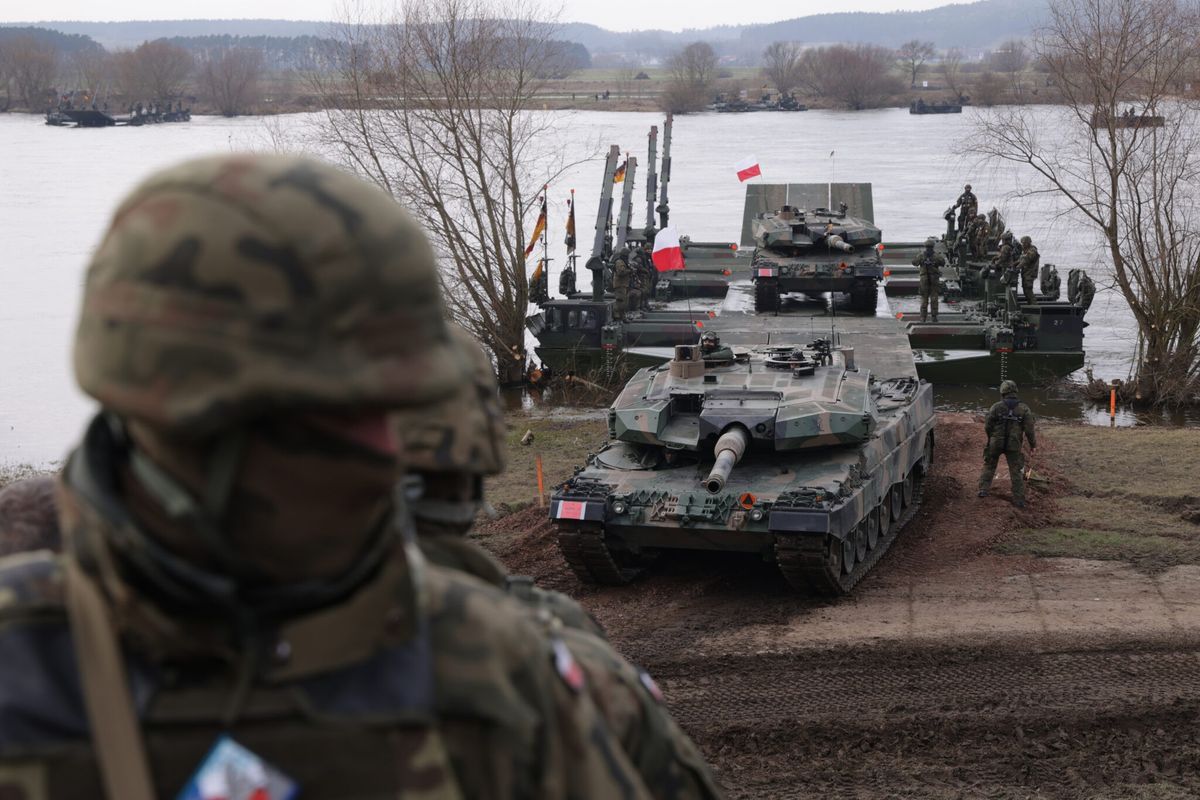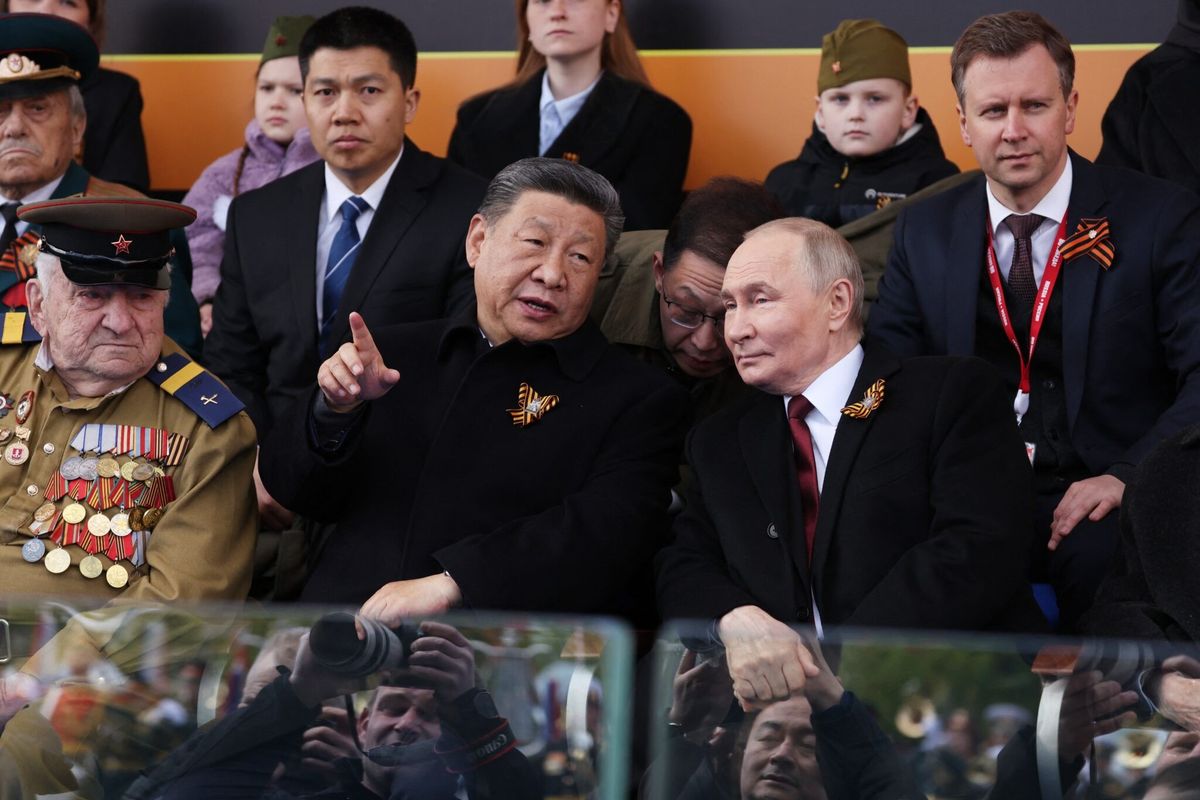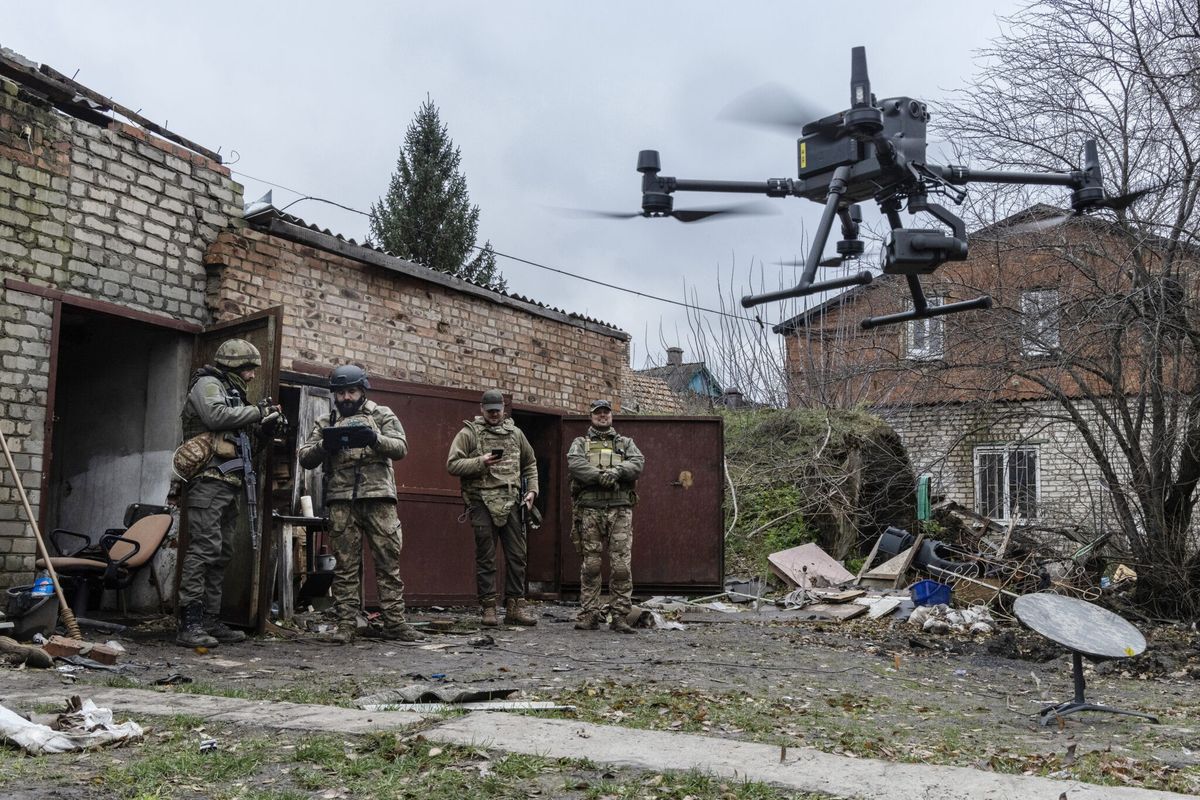SUBSCRIBER+EXCLUSIVE REPORTING — Yulia Navalnaya had come to the Munich Security Conference to urge the gathering of world leaders to think of her husband in their high-level meetings. Then came word that the jailed Russian opposition leader Alexei Navalny was dead. She said that for a moment, she considered leaving, "But then I thought, what would Alexei do in my place? And I’m sure he would be here. He would be on this stage.”
Officials in the Russian Arctic, where Navalny was serving a prison sentence, said he had “felt unwell” during a walk early Friday and died soon after. But Navalnaya and other world leaders laid the blame for her husband’s death squarely on the Kremlin.
Putin and his aides “bear responsibility for what they did to our country, to my family and to my husband,” she said in a hastily arranged address to the Munich conference. “I would like Putin and all his staff, his colleagues and government and his friends to know that they will be punished for what they have done to our country. They will be brought to justice. This day will come soon.”
In a video recorded just a day prior to his death, Navalny had appeared in good condition. His mother said she saw him on February 12, “alive, healthy and cheerful.“
“Make no mistake: Putin is responsible for Navalny’s death,” President Joe Biden told reporters at the White House. And on the sidelines of the Munich conference, Secretary of State Antony Blinken said that “for more than a decade, the Russian government, Putin, persecuted, poisoned and imprisoned Alexei Navalny.” If the reports were true, Blinken said, “His death in a Russian prison and the fixation and fear of one man only underscores the weakness and rot at the heart of the system that Putin has built.”
Author and journalist Anne Applebaum made Blinken’s point more bluntly: “They killed him, because even in jail, he threatened a regime that thrives on lies and secrets.”
Beyond expressions of outrage, there were questions about what impact Navalny’s death might have. Would it prove a galvanizing moment to punish Russia or boost support for Ukraine?
“Everyone is feeling really shocked,” Evelyn Farkas, Executive Director of the McCain Institute, told The Cipher Brief in an interview from Germany. “For many of us, we now feel the need to make the Kremlin be held accountable for this death.”
Navalny’s message - and Putin’s
Alexei Navalny knew better than most the dangers he faced. A long-time crusader against government corruption and an open critic of Putin’s rule, Navalny was barred from running in the 2018 presidential election after a conviction on fraud charges, and jailed soon after for money laundering. He and many observers called the charges politically motivated.
In 2020, Navalny became violently ill on a flight from Siberia to Moscow and was taken to Germany for treatment, where a subsequent investigation found he had been poisoned with the nerve agent Novichok, a weapon that had been used against other Putin enemies.
Navalny chose to return to Russia in 2021, against the advice of those who thought it wouldn't end well for him. In an interview with CNN’s Christiane Amanpour before leaving Germany, he said, “I don’t think that I can have such a privilege of being safe in Russia, but I have to go back.” Pressed as to why he would take the risk, Navalny took aim at the Kremlin. “Because I don’t want this group of killers to exist in Russia,” he said. “I don’t want Putin ruling Russia.“
He was jailed soon after his arrival in Moscow.
As the noose tightened against all dissent after Russia’s February 2022 invasion of Ukraine, far gentler opposition than Navalny’s became a crime against the state. Last August, he was sentenced to an additional 19 years for what Russian officials described as supporting “extremism.”
The message was clear. There would be no public place or platform for Alexei Navalny.
On Friday, in an interview with Times Radio, Cipher Brief Expert and former CIA Director Gen. David Petraeus (Ret.) called Navalny “the most courageous, most significant opponent to Vladimir Putin…a truly extraordinary figure in the Russian landscape.” But Petraeus also said, “I'm surprised that he lived as long as he did. This is a country, as you know, where you don't go near open windows or umbrellas with tips on a sunny day.”
Cipher Brief Expert and former senior CIA Officer Daniel Hoffman said Navalny’s death was above all a message from Putin to his own people, just one month before another presidential election in Russia.
“I think Vladimir Putin sees this deliberate killing, the murder of Navalny, first and foremost to demonstrate to his own people, 'Don't mess with me as the elections approach. If anybody is treacherous and thinks that they can get away with contradicting me, this is how you'll end up,” Hoffman told Fox News.
If the Russian leader had such messages in mind, Navalny had his own - and he delivered them in different ways.
In a social media post relayed from prison last month, Navalny said that since returning to Russia from Germany, he had been asked often by fellow inmates why he had come back.
“I don’t want to give up either my country or my beliefs,” Navalny wrote. “And I cannot betray either the first or the second. If your beliefs are worth something, you must be willing to stand up for them. And if necessary, make some sacrifices.”
In a video message made for the 2022 film “Navalny,” he had offered hope to his followers in the event of his death.
“If they decide to kill me, it means that we are incredibly strong,” he said, looking into the camera. “We don’t realize how strong we actually are. The only thing necessary for the triumph of evil is for good people to do nothing.“
“Absolutely a man of courage,” Cipher Brief Expert and former U.S. Army Vice Chief of Staff Gen. Jack Keane (Ret.) told Fox News Friday. “He certainly knew what he was facing when he got on that airplane and went home and knew likely that he would be in prison. But he was welcoming that because he was taking a stand against Putin and what he stands for, and he was taking a stand for the people of Russia, a country that, obviously, he deeply loves and cares about.”
Calls to Punish Russia and Help Ukraine
In 2021, after a summit meeting with Putin, President Biden said he told the Russian leader there would be “devastating” consequences for Russia if Navalny were to die in prison. On Friday, Biden suggested a different consequence: the news of Navalny’s death, the president said, should compel House Republicans to support aid for Ukraine. “I hope to God it helps.”
In The Washington Post, Max Boot made a similar plea under the headline, “Navalny stood against Putin’s evil. Will the GOP abandon the fight now?”
Boot said the news of Navalny’s death left him “filled with anger and despair…not because I am surprised by the Russian president’s villainy — that, by now, is sadly well-established. But because I am shocked and dismayed that America, the bastion of freedom, might abandon the fight against Putin’s evil.”
At the Munich conference, there were calls for justice.
“All the facts have to be established and Russia has serious questions to answer,” NATO Secretary General Jens Stoltenberg told reporters at the security conference. The Organization for Security and Cooperation in Europe (OSCE) called on Russia “to launch an immediate and credible investigation into the circumstances in which he died, and to allow Mr. Navalny’s representatives full access to it.”
It’s hard to know the impact that Navalny’s death will have in Washington, in European capitals or on the battlefields of Ukraine. One wild card will be the reaction in Russia itself, where Navalny had a significant, if largely silenced, following. Late Friday, there were reports that Russians were leaving flowers and candles in large numbers at the Solovetsky Stone in Moscow, a memorial to victims of political repression in the Soviet period. For the moment at least, the security services were not interfering.
Farkas, the McCain Institute Executive Director, who was traveling with a U.S. Congressional delegation when she spoke with The Cipher Brief, said she hoped that Navalny’s own legacy and his widow’s plea would galvanize the West to support Ukraine and punish the Kremlin.
“I think we should try to do everything we can do,” Farkas said, suggesting a raft of measures ranging from a specific international criminal charge in Navalny’s case to “asymmetric methods of proportionately punishing Russia” that might include cyberattacks against the entities that oversee the Russian penal system.
“I also think we should do a better job publicizing all of the people that Vladimir Putin has killed to make sure that he is held accountable…I do hope that our government and other governments make sure that the price is paid by the right people inside Russia.”
But at least one senior Ukrainian official was skeptical.
In a posting on the social media platform X, Ukraine’s foreign minister Dmytro Kuleba said Navalny was only the latest Kremlin critic to have been “killed by Putin. After each assassination there was a wave of outrage, but in the end, Putin got away with it, and world leaders shook his hand again. This motivated him to continue killing people.”
Read more expert-driven national security insights, perspective and analysis in The Cipher Brief














